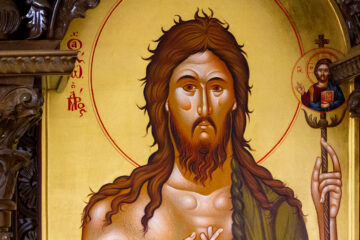(Edited by Stelios Koukos)
A young man once went to Fr. Iosif and asked to be given a strict rule.
The Elder answered:
– Anything that happens with obedience is always difficult. But what we do by ourselves, of our own free will, is something we find very easy. Listen, son, to what our abbot, Archimandrite Isaakij, told us:
‘When I lived in the outside world, I was preparing to become a monk. I kept the fasts strictly. Every day I made at least a thousand full-length prostrations.
But when I came to the monastery, all of this came under the direction of my confessor, Fr. Leonid, and he reduced the number of prostrations from a thousand to fifty.
But fairly soon afterwards, I went to Fr. Leonid and humbly asked him to reduce the number even further, because I couldn’t do them.
The Elder reduced them to 25. But after a few days I felt unable to do even these.
I was tormented by the thought: How was it possible for me to do more than a thousand prostrations easily and happily when I was living in the world and now it was impossible for me to do even twenty?
And Fr. Leonid said to me:
– While you were in the world and doing what you wanted, the enemy was helping you. What you did made you proud and made you think you were something. There’s no room for self-satisfaction here. Because here you don’t do your own will but that of somebody else. You practice obedience. You’re humbled. This is why it’s difficult. But now you benefit. Because you see how weak you are. And if you want, you can set proper, firm foundations’.
Source: pemptousia.com



0 Comments